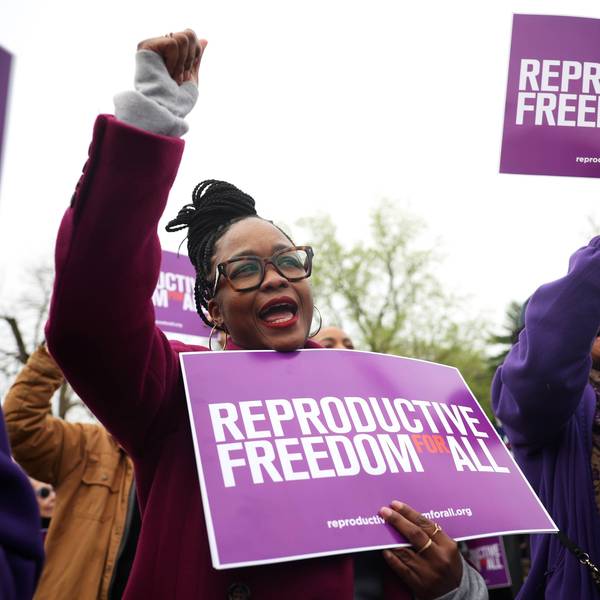An investigation into pregnancy discrimination in the workplace has renewed calls for a long-overdue update to the Pregnancy Discrimination Act, after the New York Times reported on several women who suffered pregnancy loss after their employers demanded that they continue working under strenuous conditions after they had announced their pregnancies--a practice that is completely legal under the 40-year-old law.
The women interviewed by the Times reported that they had been ordered to carry heavy boxes and equipment and work long shifts, despite presenting doctors' notes asking their employers to amend their workloads. At one warehouse in Tennessee, at least four women miscarried in 2014 after the company refused to follow their doctors' orders.
"When employers ignore these medical recommendations, they are potentially jeopardizing patients' health," Rebecca Jackson, the chief of obstetrics and gynecology at San Francisco General Hospital, told the Times. "It's especially bothersome to me that this is occurring for women in strenuous jobs, given that they are at the most risk of injuring themselves or the pregnancy."
The Pregnancy Discrimination Act was passed in 1978 and has never been updated through legislation, despite lawmakers regularly proposing a new law that would give pregnant workers the same protections the Americans with Disabilities Act provides to workers who qualify.
As the Times reported, the current law simply stipulates that "a company has to accommodate pregnant workers' requests only if it is already doing so for other employees who are 'similar in their ability or inability to work.'"
Under the PDA, a company like the warehouse in Tennessee is within its rights if it orders pregnant workers to follow its employee rules--which prohibit unapproved breaks, late arrivals to, or early departures from work, under penalty of "immediate termination--with no special consideration for their medical needs.
"It is way past time for Congress to update the Pregnancy Discrimination Act of 1978 to require employers to accommodate pregnant women whose health depends on it," Valerie Jarrett, a former aide to President Barack Obama, wrote on Twitter.
One woman told the Times that she had suffered a second-trimester miscarriage after working an eight-hour shift in a windowless building, lifting 45-pound boxes. Another lost her baby after going into premature labor, following weeks of her employer ignoring explicit instructions that the woman should not stand for long periods of time or lift heavy objects.
On social media, some pointed out that reports of pregnancy loss due to workplace treatment are just one aspect of discrimination against pregnant workers in the U.S.--and emblematic of a culture which sees pregnancy as an inconvenience to employers.
A number of critics called on Congress to modify the Pregnancy Discrimination Act and to finally hold hearings on a bill that would guarantee safety protections for pregnant women in the workplace--which has been introduced by a bipartisan group of lawmakers in every congressional session since 2012.
Others who read the Times article overseas expressed shock at the United States' legal mistreatment of pregnant workers.




